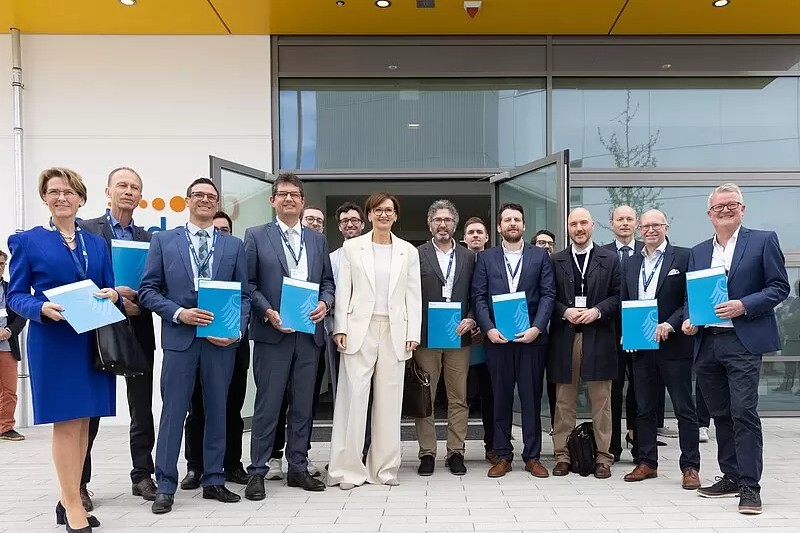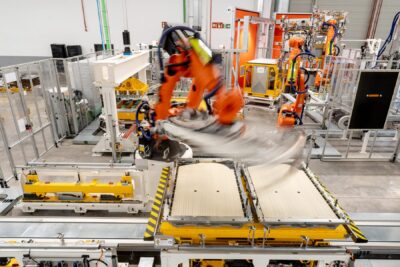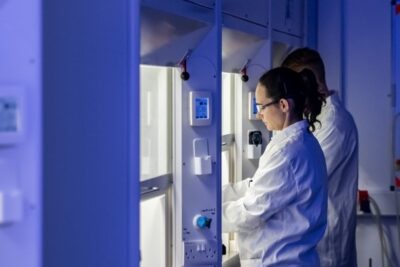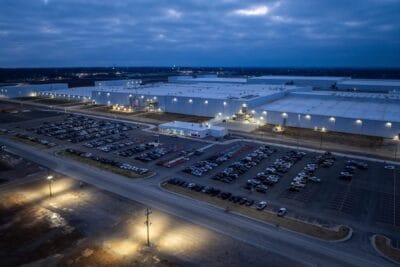Varta initiates project to develop sodium-ion batteries
The acronym ENTISE stands for ‘Development of Sodium Ion Technology for Industrially Scalable Energy Storage’, or as it is phrased in German, the “Entwicklung der Natrium-Ionen-Technologie für Industriell Skalierbare Energiespeicher.” The project is due to start on 1 June and run for three years. The core objective is to develop “industrially usable, high-performance and environmentally friendly cells”, as stated in an accompanying press release. The project, initiated and coordinated by Varta, is being funded by the German Federal Ministry of Research and Education with around 7.5 million euros. The consortium received the corresponding notification this week.
According to the initiators, a central component of the project will be the production of sufficient quantities of the necessary materials to build individual resilient laboratory samples through to prototypes in round cell design. “In the final phase of the project, the individual components will then be upscaled and transferred from the laboratory to the pre-industrial sector (piloting),” it continues. The final product of this upscaling will be a small series of round cells that will “enable a reliable evaluation of properties in practical application scenarios such as electric vehicles and stationary storage systems.”
Sodium is known to be readily available, inexpensive, safe and easy to dispose of or recycle. The challenge is to transfer this technology into industrially utilisable and scalable cells. This is where project ENTISE comes in. “For the German battery community, this project represents a milestone in the development of sustainable sodium-ion batteries. In order to further advance the future of decentralised energy storage and use, other innovative and powerful storage technologies are needed in addition to lithium-ion technology,” says Rainer Hald, CTO of Varta AG.
In the eyes of Varta’s Head of Technology, sodium-ion batteries can make an important contribution to the decarbonisation and electrification of many areas in addition to existing technologies in order to actively shape the energy and mobility transition. “The funding of this project is an important sign that the research and development of cutting-edge technology in the battery sector can have a future in Germany and Europe. Our thanks as a consortium therefore go to the German government, which has agreed to support ENTISE despite the reduction in funding for battery research.”
From a technological point of view, the project aims in particular to improve the storage capacities of the cathode and anode as well as the cycle stability. An accompanying technical, economic and ecological evaluation will round off the project.
Sodium batteries are an approach that has re-emerged in recent years and would bring a clear cost reduction in the electric car sector. We recently asked Markus Lienkamp, Professor of Automotive Engineering at the Technical University of Munich, what role the sodium-ion battery can play in electromobility. You can read his answer here.
In China, the big players are increasingly turning to sodium-ion batteries: at the end of 2023, BYD and Huaihai signed a contract to build a plant for sodium-ion batteries in China with an annual capacity of 30 GWh. CATL is also planning to produce sodium-ion cells, as is the Chinese company Zoolnasm. In February, we also recently reported that the JAC subsidiary Yiwei exported electric vehicles with sodium-ion batteries for the first time.





1 Comment